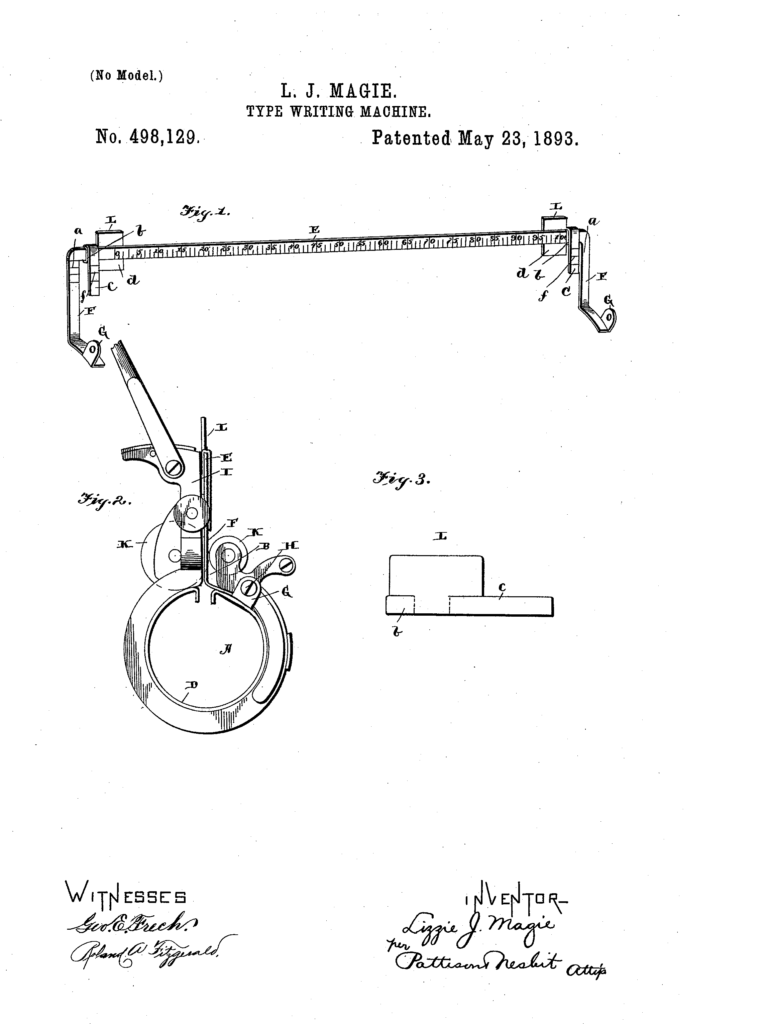International Women’s Day is a global day celebrating the social, economic, cultural and political achievements of women. In the field of inventions and patents, there are many important and prolific women inventors, but one worthy of remembrance on International Women’s Day is Elizabeth J. “Lizzie” Magie was born in Macomb, Illinois in 1866. She was a stenographer, short story and poetry writer, comedian, stage actress, feminist, and engineer. In 1893, at the age of 26, Lizzie received her first patent on an improvement in typewriters:

Lizzie was a political activist, and invented a game called The Landlord’s Game to demonstrate the economic ill effects of land monopolism, and the use of taxes as a remedy for it. Lizzie applied for a patent on her board game, and was granted U.S. Patent 748,626 on January 5, 1904:

As her first patent on the Landlord’s game was expiring, Lizziey, now married, invented and patented an updated version of the Landlord’s Game:

If Lizzie’s game seems familiar, you may be thinking of C.B. Darrow’s Monopoly game, patented in 1935 and marketed by Parker Brothers.

After the release of Monopoly, Lizzie gave in interview in which she was critical of Parker Brothers, and identified the similarities between Monopoly and The Landlord’s Game. Parker Brothers agreed to publish two more of her games, but continued to give Darrow the credit for inventing the game itself. Many years later, Ralp Anspach stumbled upon Lizzie’s patents while fighting his own legal battle with Parker Brothers over Anspach’s Anti-Monopoly game, which resulted in increase appreciate for Lizzie’s contribution to the game.
Wikipedia reports that Lizzie believed that women were as capable as men in inventing, business, and other professional areas. She was correct then, and for that, worthy of remembrance now.
